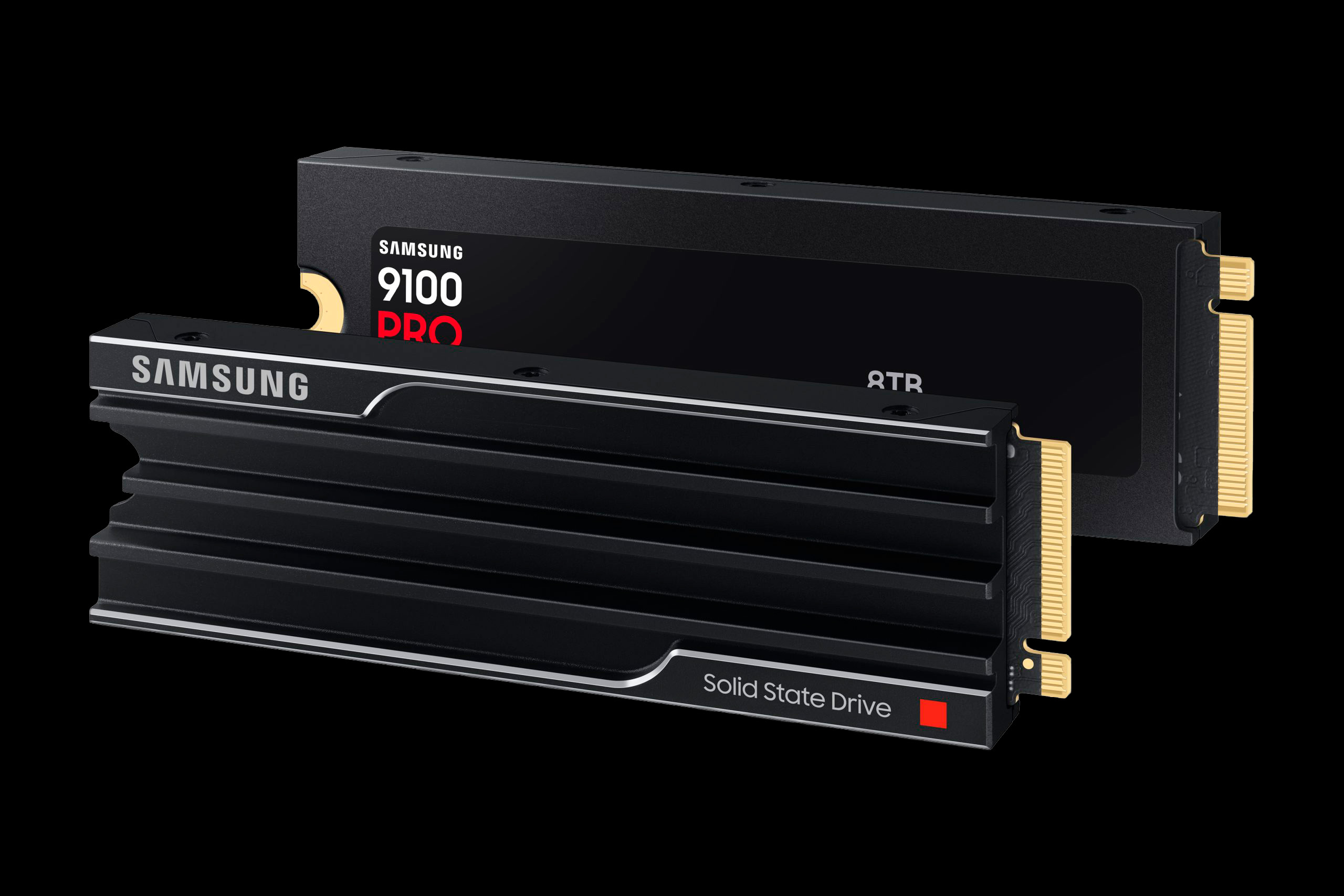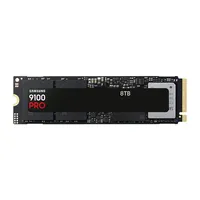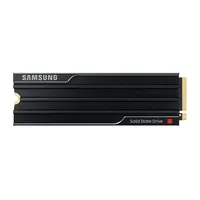Samsung bulks the 9100 Pro up to 8TB for $999 — heatsink costs an extra $20

The Samsung 9100 Pro is now available in the 8TB configuration. Samsung has established a $999.99 MSRP on its website for the bare drive, while the heatsink model retails for $1,019.99.
There aren't many 8TB PCIe 5.0 drives right now, so the Samsung 9100 Pro, one of the best SSDs, practically has the retail market to itself. The drive obviously caters to users and professionals with an enormous need for storage, as well as to gamers with a massive library of games. With a standard M.2 2280 form factor, the Samsung 9100 Pro 8TB will fit easily inside desktops, laptops, and gaming consoles, such as the PlayStation 5, without any issues.
The Samsung 9100 Pro incorporates Samsung's proprietary Presto SSD controller, 236-layer TLC V8 NAND flash memory, and 8GB of LPDDRX. Although performance may occasionally decline slightly at higher capacities, the Samsung 9100 Pro 8TB maintains comparable speed to the 4TB variant, rendering both models among the fastest across all capacities offered by Samsung.
Similar to the 4TB SKU, the 8TB model provides sequential performance up to 14,800 MB/s for read operations and 13,400 MB/s for write operations. Furthermore, random performance scales up to 2,200,000 IOPS reads and 2,600,000 IOPS writes. The endurance of the Samsung 9100 Pro 8TB has doubled to 4,800 TBW in comparison to the 4TB drive's rating of 2,400 TBW.
The Samsung 9100 Pro 8TB is a spacious SSD that delivers exceptional PCIe 5.0 performance with sequential read and write speeds up to 14,800 MB/s and 13,400 MB/s, respectively.
The heatsink version of the Samsung 9100 Pro 8TB features a sleek, black heat spreader to improve thermal dissipation. The SSD has a thickness of 8.8mm to ensure compatibility with desktops, laptops, and the PlayStation 5.
The 8TB capacity does draw a bit more power, though. According to Samsung, the SSD consumes around 9.3mW (PS3 APST on) and 8.6mW (PS4 L1.2) in idle, which is up to 43% and 51% higher than the 4TB variant. Meanwhile, the active average power consumption is rated at 10.5W for read and 8.8W for write, roughly 17% and 7% more than the 4TB drive.
The Samsung 9100 Pro 8TB is now available for pre-order on Samsung's online store. The standard version costs $999.99, while the heatsink version is priced at $1,019.99. However, it shouldn't be long until the SSD is available from all the major U.S. retailers.
Follow Tom's Hardware on Google News, or add us as a preferred source, to get our up-to-date news, analysis, and reviews in your feeds. Make sure to click the Follow button!
Get Tom's Hardware's best news and in-depth reviews, straight to your inbox.

Zhiye Liu is a news editor, memory reviewer, and SSD tester at Tom’s Hardware. Although he loves everything that’s hardware, he has a soft spot for CPUs, GPUs, and RAM.
-
Notton Aside from sequential speed, what benefit does the Samsung 9100 Pro 8TB have over the WD SN850X 8TB?Reply -
Broly MAXIMUMER Now if only we could double the capacity from here, we'd actually be getting somewhere.Reply
Seems they've all insisted that noone without a SAS connector needs more that 4 terabytes, with only a few even bothering to throw 8 outside of enterprise. -
Amdlova Reply
Heat you on the winter...Notton said:Aside from sequential speed, what benefit does the Samsung 9100 Pro 8TB have over the WD SN850X 8TB? -
Mr Majestyk Reply
So you want PCI-E gen 4 then and that's not a problem as basically the difference in real world to 99.9% people between even good PCI-E 3.0 and 5.0 ss'd is a few % and you use less power and stay way cooler. The sequential headline transfer rate is irrelevant for most of us.kuramakitsune said:14GB/s
I don't care.
Make it half as fast,
and half the price -
bit_user So, what the article doesn't tell you is that it's double-sided. That could be a big deal, when it comes to cooling and the potential for thermal throttling.Reply
ServeTheHome actually reviewed it!
https://www.servethehome.com/samsung-9100-pro-8tb-pcie-gen5-nvme-ssd-review/
On the last page, they get into thermals. They found it eventually got up to 70 C, but didn't bother to say exactly how long that took. Furthermore, they never said nor showed what their test setup is like, other than the bare essentials like motherboard & CPU. So, we don't know if it was open bench or how much airflow they might've had on it.
FWIW, their review didn't have evidence of throttling (at least, not that I noticed). However, that depends a lot on your setup and how well you can cool it.

